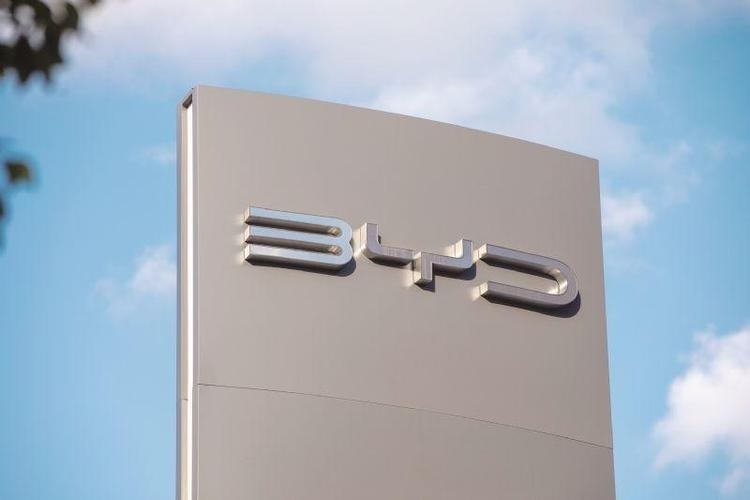India to BYD investment to build plant Say No! How difficult is it for foreign car companies to "survive" in India?
Indian authorities have reportedly rejected plans by Chinese electric car giant BYD to invest $1 billion in a car manufacturing plant in India.。
Indian authorities have reportedly rejected plans by Chinese electric car giant BYD to invest $1 billion in a car manufacturing plant in India.。
In a proposal submitted to India's Ministry of Industry and Domestic Trade Promotion (DPIIT), BYD plans to set up a joint venture with Hyderabad-based Megha Engineering and Infrastructure Ltd (MEIL).。The joint venture promises to produce up to 15,000 electric vehicles a year.。MEIL is primarily funded, while technology and expertise are provided by BYD。The investment proposal also mentioned that the two companies plan to set up charging stations and establish R & D and training centers in India.。
Reported that the rejection of the proposal, because of India's Chinese investment in the local security concerns。
Previously, MEIL's Olectra Greentech has developed two electric buses with technical support from BYD.。Currently, Olectra has received about 2,000 orders worth Rs 3,000-3,500 crore.。These electric buses are scheduled to be delivered in the next 12-18 months。

At this stage, the development of domestic enterprises in India needs technology, while Chinese enterprises want to expand overseas markets.。But since April 2020, India has tightened its policy on direct investment by foreign businesses in the country.。It requires that investments from countries bordering its land must be approved by the government and a committee headed by the Home Secretary decides on such proposals.。Although the policy does not mention any country, it is widely believed to be aimed at preventing companies from China from making major acquisitions of domestic entities in India.。
But "there are policies, there are countermeasures," in response to the above policies, it is reported that some Chinese car companies no longer choose to "single-handedly" into the Indian market, but choose to hire Indian agent partners, this move can not only show the meaning of friendly cooperation, but also reduce the risk of being strictly examined.。
In addition, there are "rewards" for working with local Indian companies.。Since 2020, the Indian government has introduced a series of production incentive plans for the manufacturing industry, referred to as the "PLI Plan," which aims to encourage domestic and foreign companies to develop manufacturing in India and create local jobs.。But the incentive scheme has different criteria for local and foreign companies, with a much higher threshold for foreign companies.。As a result, many foreign companies choose to cooperate with local companies to apply for incentives, while also reducing production costs.。
However, the road of cooperation with local enterprises is also a bit "impassable" now.。There are voices of accusation that Chinese companies are hiring Indian agency partners as a cover and do not demonstrate any long-term strategic willingness to transfer manufacturing capacity to India。It is understood that DPIIT is now also beginning to review Chinese car companies with ties to Indian companies.。
Despite the difficulties, many car companies are still reluctant to give up the Indian market。India overtook Japan as the world's third-largest car market earlier this year.。According to a research report by industry consulting firm RBSA, India's electric vehicle market is currently in its infancy, and the market size may reach US $150 billion by 2030。
Earlier, Sanjay Gopalakrishnan, senior vice president of BYD's India subsidiary, said that BYD hopes to capture 40% of the Indian electric vehicle market by 2030.。
India's huge market has attracted the attention of many car companies, including BYD's rival Tesla。In late June, Tesla CEO Elon Musk met with Indian Prime Minister Narendra Modi in New York, and after the meeting, Musk said, "I believe Tesla will enter India and will do it as soon as possible within the reach of manpower."。He also added that he plans to visit India next year.。
But for foreign car companies, India's business environment is not very friendly, one of the major obstacles is the high tariffs。It is reported that imported cars with a landing cost of more than $40,000 face import duties of up to 100% in India, plus a 10% social welfare tax.。Tariffs on cars with a landing cost of less than $40,000 are 70%。High taxes make it difficult for foreign car companies to explore the local market in India.。
At the same time, the scrutiny of the Indian authorities and low administrative efficiency also made many car companies "miserable" and eventually had to choose to leave.。In 2021, Ford announced the closure of manufacturing in India.。Ford says it has lost more than $2 billion in India in the last decade。General Motors, another well-known global car company, stopped producing and selling cars in the Indian market as early as 2017 because the company considered it "unprofitable" in the Indian market.。It wasn't until March of this year that GM's Indian plant found Hyundai to "pick up the plate."。
·Original
Disclaimer: The views in this article are from the original Creator and do not represent the views or position of Hawk Insight. The content of the article is for reference, communication and learning only, and does not constitute investment advice. If it involves copyright issues, please contact us for deletion.